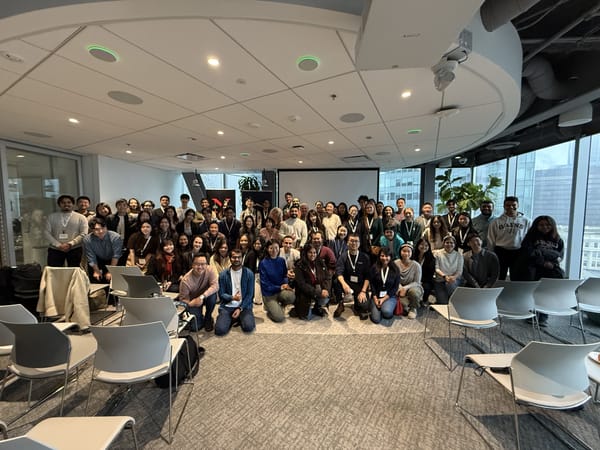Fundamental Product Management: Why it’s more important in the AI Age

Generative Artificial Intelligence (GenAI) continues to expand its horizons across a myriad of industries, enabling product managers (PMs) of all domains with the chance to become AI-focused and more tech-savvy.
GenAI has obviously rocketed into popularity over the last few years. AI-enabled products have sprung to life across various industries like a field of dandelions — almost at an uncontrollable rate with seemingly infinite VC money to continue the water and sunshine.
From a product management perspective, AI can boost PM productivity and strategic domain knowledge in so many ways.
That being said, this article is about why fundamental PM practices are still king, and how said fundamentals can elevate a PM in the world of GenAI. Product management as a practice is a core skill that applies to all product development focuses, whether it involves AI or not.
So why are the fundamental PM skills important no matter the industry, AI or not?
Here are 3 main reasons why fundamental PM still matters, and actionable methods that will allow a PM to truly thrive in an ever-expanding world of AI unknowns.
1. Product development is too complicated
Every time an inexperienced PM would read about how a product team works by theory, they would assume that product development isn’t that complicated — a rookie mistake.
The reality is, most likely, there are hundreds of moving pieces at any given time. Whether that would be team-based dependencies, sales and marketing enablement, internal tooling handled by overseas teams, data telemetry that needs refreshing, or small tasks and responsibilities that impact all of the above.
A product manager is special because they’re expected to identify and manage those hidden, moving pieces. They’re superheroes who help with product growth and delivery as much as they can, whatever it takes. This ability matters more on the job than becoming the biggest AI expert on the team (although that obviously doesn’t hurt!).
I was recently invited to Maximizer CRM’s head office in Vancouver to give a talk on the world of AI Assistants, where I covered how the global GenAI market grew from $50B to $184B from 2023 to 2024. After the presentation, I was surrounded by questions on how their organization can really adopt AI to improve their product development processes. Their concerns aligned with mine: with how complicated product development is, can adopting tools like GitHub Copilot really accelerate work velocity? My answer remained focused on fundamentals: product managers need to maintain a strong product culture to ensure that the adoption of AI, no matter how complex, is smooth sailing.
Another thing to note in the world of product development is the pace of change in technology, which has accelerated dramatically. If the team is trying to leverage GenAI in their product, then the pace of change could move even faster. AI capabilities evolve rapidly, sometimes weekly, making it crucial for PMs to stay grounded in timeless principles: understanding user needs, defining clear problems, and delivering real value. Without these fundamentals, teams risk chasing AI capabilities rather than solving customer problems, which can be a sunken ship.
GenAI can now automate specific tasks and workflows, but they’re limited in their costs, specificity, and nuance. A real human PM with strong fundamental knowledge will know how to make an immediate impact in a product team with AI tools at their disposal and understand how to manage all those moving pieces that move the needle forward. These could include:
- Knowing their top 5–10 most important items for the day out of 100
- Understanding what to prioritize and deprioritize
- Learning when to say no
- Leveraging email AI tools to filter out the noise
- Picking out areas or processes that can be automated or cut
2. Product Fundamentals involve interpersonal skills, which AI can’t replace
As ironic as this may feel, the greater the complexity of AI product development (which is inevitable!), the more important it is for a PM to demonstrate strong interpersonal skills in their team.
I firmly believe that strong stakeholder management is a key pillar that no PM should ever sacrifice, no matter how advanced their technology may be. Most PMs work with incredibly diverse teams (think: frontend and backend developers, data scientists, designers, marketing, sales, executives, and external stakeholders). Will you rely on GenAI to context-switch and tailor your presentations to specific audiences, or will you rely on your strong interpersonal ability to carry that forward?
User interviews, customer relationships, stakeholder management, and debates with your product team on key issues like feature prioritization should all be driven by human interpersonal skills, such as:
- Learning social dynamics and being friendly, understanding, and most of all easy to work with for your engineers
- Leading and influencing without authority by listening to your peers and showing that you understand their point of view, even if you disagree
- Being empathetic in user and customer interviews to really learn what they’re feeling and experiencing when they try your product
3. Product Fundamentals help PMs understand vertical use cases
A ‘vertical’ use case is different from a traditional use case in terms of focus. A use case is broader; it could encapsulate any type of task, JTBD (job to be done), or goal that a customer/user is trying to achieve. A vertical use case is simply a subset of the broader use case definition since it focuses on a more niche and specific task.
In the world of GenAI, we have what we call AI Agents. AI Agents are individual LLM-powered AI components that accomplish a specific task or set of tasks. For example, in Microsoft Copilot, a particular AI Agent could be a Microsoft Word summarizer agent, where an LLM is configured to only analyze the content in a Word document, and then summarize its contents for the user. Instead of focusing on everything, the agent is only focused on accomplishing its specific use case in a more focused approach.
This leads us to the topic of ‘Vertical AI Agents’ — which is just a fancy way to describe an AI agent that can accomplish a very niche task or use case better than if it were a more general AI Agent or Assistant.
The Vertical AI market has exploded ever since GenAI bloomed back in 2022, and is poised to hit record market valuations. According to AIM Research, the vertical AI market was valued at $5.1B in 2024 and is projected to reach $47.1B by 2030 — astounding growth.
Product managers are expected to be at the forefront of this growth by identifying vertical use cases that every vertical AI agent can be an expert on. But how would they be able to discover these valuable vertical use cases?
One professional anecdote I’d like to share is our experience at Planview and the constant discovery work we perform to validate our customers' vertical use cases. After delivering the first version of Planview’s AI Assistant, Planview Copilot, our team quickly realized that our customer base had no idea how it could benefit them, and the potential list of use cases was both wide and differentiated.
As product manager for Planview Copilot, I chose a few specific use cases to start the MVP of the product as my hypothesis and engaged with my customers interpersonally through feedback calls and data telemetry to validate if those use cases were useful to them. Throughout the year, I continuously applied this approach of failing fast until something stuck with our customers: a set of AI-based use cases that truly brought value to their day-to-day workflow. Fundamental practices were key for us to achieve this success, and this is why the vertical AI agent market will be full of growing pains yet exciting energy as more companies begin to discover these vertical use cases like the way Planview Copilot did.
Fundamental PM practices — the skills that encompass the core reasons why PMs exist — will be the solution. Examples include product discovery, use case prioritization, customer relationships, and feedback internalization. A PM is hired to discover those vertical use cases in the world of GenAI, and then craft a strategy and deliver on those promises.
I would suggest that PMs continue to:
- Explore the most common yet innovative ways to conduct product and use case discovery
- Stretch their brain through different ways to prioritize problems to solve
- Read into the GenAI market to predict changes, understand customer problems, and identify core gaps that their products could solve
Conclusion
I hope I’ve clarified the ever-constant importance of PM fundamentals, even in the digital AI age. I believe that as PMs continue to share their best practices and improve their workflows and frameworks, the GenAI market will continue accelerating its customer value. The real impact will be realized in work efficiency, time-saving, entertainment, and quality of life.





